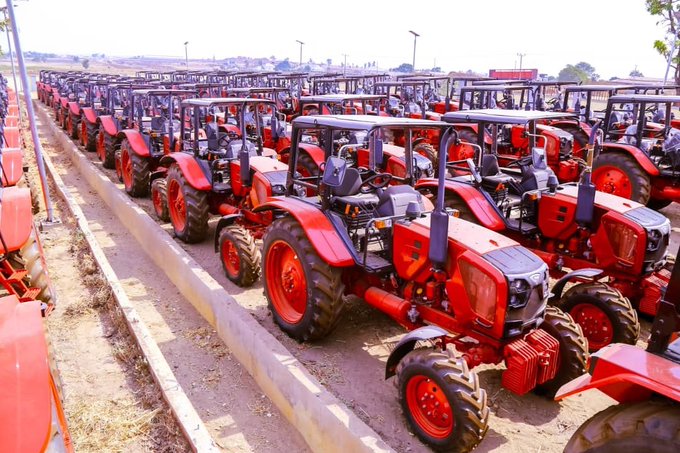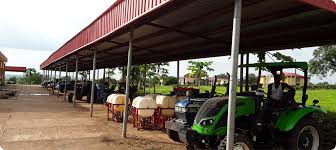In an attempt to boost food security and strengthen agricultural productivity across the country, the Federal Government has announced plans to establish one mechanisation service centre in each of Nigeria’s six geopolitical zones.
The Minister of Agriculture and Food Security, Senator Abubakar Kyari, made this known at the 25th International Conference and 45th Annual General Meeting of the Nigerian Institution of Agricultural Engineers, held at the National Centre for Agricultural Mechanisation, Idofian, Kwara State.
Kyari revealed that the proposed mechanisation service centres would serve as regional hubs for equipment training, repairs, and coordination, aimed at ensuring that modern farm machinery is accessible, functional, and properly maintained nationwide.
He posited that the initiative is part of the Tinubu administration’s renewed push to modernise the agriculture sector and empower farmers, particularly youth and women, with technology-driven tools for enhanced productivity, saying that, to ensure regional balance and operational efficiency, one mechanisation service centre would be established in the first instance in each of Nigeria’s six geopolitical zones.
“These hubs will provide training, maintenance, and coordination services to guarantee effective use of agricultural machinery across the country”, he said.
The minister also disclosed that the government had procured 2,000 tractors and over 9,000 complementary farm implements and spare parts to expand access to mechanised equipment in farming communities, noting that under the Renewed Mechanisation Programme embedded in the Agricultural Transformation and Innovation Plan, the government is developing a nationwide ecosystem that integrates tractors, power tillers, planters, harvesters, and threshers into one accessible platform.
Kyari emphasised that beyond procurement, the government’s focus is on standardisation, local assembly, and quality assurance, with NCAM serving as the central agency for certification and technical validation of machinery deployed nationwide.

“Our farmers deserve home-grown technologies, developed with a deep understanding of our soils, crops, and the realities of smallholder farming”, he added.
Highlighting the importance of collaboration, the minister commended the ongoing partnership between NCAM and Tanta Motors of Egypt, which had resulted in the improved design of the yam mound-making machine now upgraded to serve dual functions.
He said the partnership would extend to other locally-developed machines, including cassava planters, mechanical weeders, and multi-crop threshers, to promote standardisation and commercialisation under a joint NCAM branding arrangement.
In his keynote address, the Governor of Borno State, Babagana Zulum described agricultural mechanisation as the bedrock of food security and sustainable national development, urging federal and state governments to prioritise access to modern tools for smallholder farmers.
Earlier, the National Chairman of NIAE, Engr. Prof. Joshua Olaoye, said the conference marked a moment of reflection, innovation, and renewed commitment to transforming Nigeria’s agricultural landscape through home-grown technologies.
He noted that the 50th anniversary of the institution signifies a paradigm shift from theoretical research to practical engineering solutions that address the low mechanisation index of Nigerian agriculture.
“We are showcasing locally-developed technologies tractors, planters, harvesters, and dryers to demonstrate our readiness to move from paper to practical innovations that empower farmers and boost productivity”, he said.
For over five decades, NIAE has been at the forefront of promoting mechanised agriculture, fostering partnerships between researchers, fabricators, and government institutions to drive innovation and sustainability in the sector.



